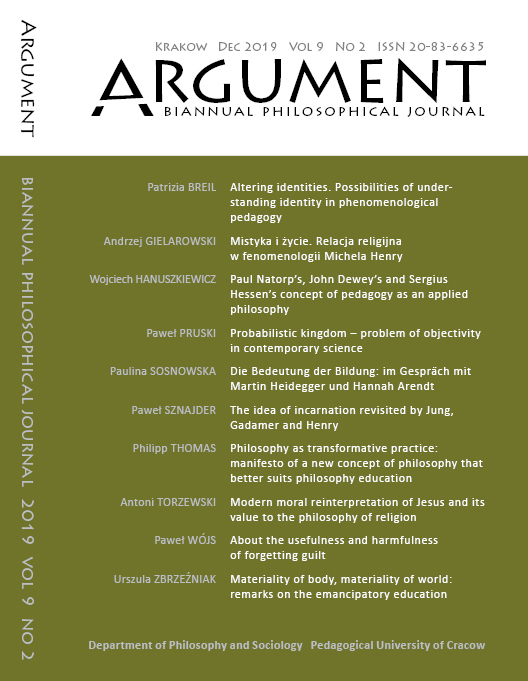About the usefulness and harmfulness of forgetting the German guilt
About the usefulness and harmfulness of forgetting the German guilt
Author(s): Paweł WójsSubject(s): Political Philosophy, Social Philosophy, Fascism, Nazism and WW II, Philosophy of History, Politics of History/Memory
Published by: Wydawnictwo Uniwersytetu Komisji Edukacji Narodowej w Krakowie
Keywords: guilt; German guilt; forgetting guilt; memory; World War II; boundary situations; Karl Jaspers; Friedrich Nietzsche; Hannah Arendt;
Summary/Abstract: The distinction between kinds of guilt has not lost its power to illuminate matters, and it remains a great tool to study the consequences of forgetting guilt of any kind. Karl Jaspers made the distinction between kinds of guilt mainly to ease the Germans coping with guilt, as all of them were blamed for the evil that happened under Adolf Hitler. Jaspers believed that in using this distinction the German nation could have come back to its origins, and thus purified, take its part in the possible future unity of the world and of all mankind. But soon after World War II ended, a confluence of political, social, psychological and philosophical factors contributed to a situation in which a large number of culprits were not brought to account: criminals were rarely rightly punished. In addition, many Germans believing in the ideology of National Socialism felt no guilt in terms of morality; they downplayed the political guilt; they negated the very existence of the metaphysical guilt. The process of forgetting guilt occurred.
Journal: ARGUMENT: Biannual Philosophical Journal
- Issue Year: IX/2019
- Issue No: 2
- Page Range: 271-287
- Page Count: 17
- Language: English

